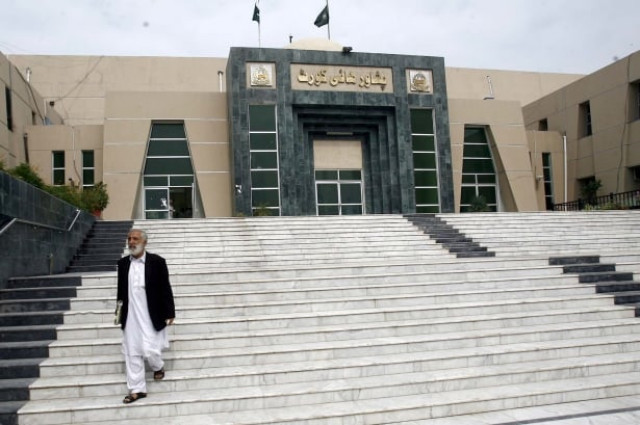Indian national’s case: Ansari not entitled to remission in sentence, PHC told
Respondents say Indian citizen had confessed to spying before a magistrate

On September 20, Fauzia Ansari, mother of missing Nehal Hamid Ansari, appealed to Indian Prime Minister Modi to intervene and secure her son’s release. PHOTO: PPI
“He [Ansari] cannot be granted the benefits of section 382-B of CrPC as he was a spy and was found involved in anti-state activities,” the counsel for respondents told the PHC’s two-judge bench, comprising Chief Justice Yahya Afridi and Justice Qalandar Ali Khan.
India demands consular access to Jadhav, Hamid Ansari
The bench was hearing the petition filed by Ansari, who was convicted by a military court and was awarded a three-year rigorous imprisonment. He is now imprisoned in a Mardan jail.
Ansari filed the case through senior lawyer Qazi Muhammad Anwar requesting that he should not be treated as a spy as he was not involved in ‘anti-state activities’ and should be released as he has completed the three-year imprisonment awarded by the military court in the 2015. He has also requested the court to amend his jail warrant as the word ‘anti-state activities’ is written on it.
Security agencies arrested Ansari on Nov 14, 2012 in Kohat. According to his petition, he had crossed into Pakistan via Afghanistan without travel documents and with a fake ID card of Hamza to meet a girl he had befriended on social media. However, security forces said he was on espionage expedition.
During the previous hearing of the case, the court had directed the respondents, including the ministry of defense and the federal and provincial government to submit their responses in the case.
On Wednesday the government’s counsel told the court that during investigation, authorities had recovered evidences from the convict’s possession which included maps and photographs of the sensitive installation of Pakistan armed force.
“As per recorded evidences, Ansari’s involvement in espionage activities proved beyond an iota of doubt. Overwhelming evidences are available to substantiate the charge. “Neither his jail warrant can be amended nor can any of word be substituted,” the court was told.
The respondents told the court that a Field General Court Martial (FGCM) had adjudged him ‘guilty’ of solitary charge and awarded him sentence of rigorous imprisonment for three years reckoned from the date of December 17, 2015.
The PHC was told that the trial court had duly considered the length of period, the convict had spent in the custody of security forces awaiting the finalisation of his trial as required under the PAA’s rule 53, read with section 382-B of CrPC.
Indian man jailed in Peshawar requests court not to treat him as spy
“He had also confessed to his guilt before Muhammad Faiz, the judicial magistrate class 1st in Peshawar. The provision of the CrPC section 164 was compiled with letter and spirit,” said Deputy Attorney-General Mussarat Ullah.
He argued in the court that Ansari’s petition for remission was also not maintainable on the ground that the alternate remedy available to Ansari, under the PAA had already been availed by the petitioner.
The respondents also argued that the convict had also filed the petition after the time lapse of more than one year. In the instrument of law, a convict can appeal against the conviction within 90 days of time.
However, Ansari’s counsel Anwar said the convict was not proved a spy and had now been shifted to the civil authorities. He should now be treated under the law that applies to other prisoners, he said. After hearing the arguments, the court directed the Mardan Jail superintendent to appear in person before the court on February 7.













COMMENTS
Comments are moderated and generally will be posted if they are on-topic and not abusive.
For more information, please see our Comments FAQ